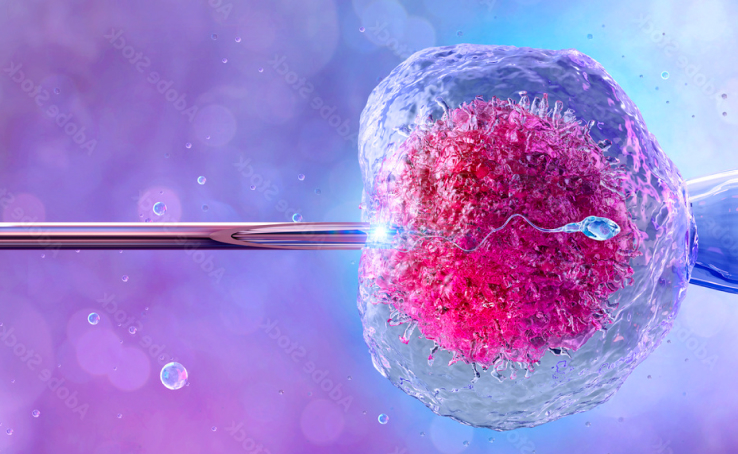Share your medical reports and get an exclusive offer tailored to your needs, requirements and preferences
Avg Price: $ 2500-$ 4800


Treatment Time
Recovery Time
Hospitalization Days
Success Rate
The undeniable reality is that India is rapidly ascending the global infertility statistics chart. As per a report by Ernst and Young, India is now home to 27.5 million couples grappling with infertility challenges. The increasing prevalence of delayed parenthood has amplified the incidence of infertility, primarily due to the diminishing quality of eggs among women, thereby rendering conception more difficult. Consequently, couples are increasingly turning to advanced treatment options, giving rise to substantial market prospects.
In Vitro-Fertilization (IVF) has had a transformative impact on India, and this year commemorates the 45th anniversary since the arrival of the first In-Vitro Fertilization (IVF) baby, symbolizing a ray of hope that forever altered the landscape of infertility treatment.
According to research, the fertility sector in India has exhibited remarkable growth, surging by 20% within the past half-decade. The In-Vitro Fertilization (IVF) industry, in particular, is experiencing a robust upswing. On a global scale, more than 2.5 million IVF cycles are conducted annually, whereas in India, the figure stands at a comparatively modest 2-2.5 lakh IVF cycles per year. However, the future appears exceedingly promising, given that the Indian fertility industry was appraised at $746 million in 2021, and projections suggest it will soar to $1,453 million by 2027, with the potential to administer 5-6 lakh In-Vitro Fertilization (IVF) cycles.
A significant catalyst propelling this growth is the steadily increasing the success rates of IVF, which have climbed to an impressive 60% year-to-date. This upward trajectory in outcomes support and increase the growing demand for IVF in India. Therefore, access to finding best doctor for IVF and best hospital for IVF in India is getting easier and more comfortable every day.
Why is In-Vitro Fertilization (IVF) needed?
Individuals opt for In-Vitro Fertilization (IVF) for a variety of reasons, which may encompass fertility challenges or when one partner contends with an existing medical condition. Some individuals turn to IVF after exhausting other fertility treatments or as they advance in maternal age. Additionally, IVF stands as a viable reproductive choice for same-sex couples or individuals desiring parenthood without a partner.
In-Vitro Fertilization (IVF) becomes a consideration if you or your partner experience:
In Vitro-Fertilization, commonly known as IVF, encompasses a complex series of procedures designed to facilitate pregnancy. In cases where multiple embryos are implanted in the uterus, there is a potential for a multiple pregnancy, resulting in the birth of more than one baby.
It serves as a remedy for infertility, a condition that typically manifests when couples are unable to achieve pregnancy after a year of concerted efforts. In-Vitro Fertilization (IVF) can also be employed to prevent the transmission of genetic disorders to offspring. The likelihood of a successful, healthy pregnancy through IVF hinges on various factors, including age and the underlying cause of infertility. Moreover, it's important to note that In-Vitro Fertilization (IVF) entails a series of procedures that can be time-consuming, financially demanding, and invasive.
Take Charge of Your Health
Book a Free Consultation

There are two commonly employed techniques to attempt fertilization of eggs with sperm:
Before embarking on an In-Vitro Fertilization (IVF) cycle, you and your partner will likely undergo a series of screening tests. These tests encompass:
Your Health is Our Priority
Book a Free Consultation
Typically, in a woman's body, an egg and sperm join together, and if the fertilized egg attaches to the uterine lining and develops, a baby is born approximately nine months later. This natural process is referred to as unassisted or natural conception.
In Vitro-Fertilization (IVF) is a type of assisted reproductive technology (ART) that employs specialized medical methods to aid a woman in achieving pregnancy. It is commonly considered when other, more cost-effective fertility treatments have been unsuccessful.
In-Vitro Fertilization (IVF) involves five primary stages:
1. Stimulation (also known as Super Ovulation):
2. Egg Retrieval:
3. Insemination and Fertilization:
4. Embryo Culture:
5. Embryo Ransfer:
Following are certain complications linked to In-Vitro Fertilization (IVF):

Following the Embryo Transfer, the woman may be advised to take it easy for the rest of the day. Full bed rest is generally unnecessary unless there's an elevated risk of OHSS. For most women, they can resume their usual activities as early as the next day.
Women undergoing IVF are required to receive daily injections or take oral progesterone supplements for a period of 8 to 10 weeks after the embryo transfer. Progesterone is a hormone naturally produced by the ovaries, which prepares the uterine lining to facilitate embryo attachment. It also supports the growth and establishment of an implanted embryo in the uterus. In some cases, a woman may continue taking progesterone for 8 to 12 weeks after confirming pregnancy. Inadequate progesterone levels during the initial stages of pregnancy could increase the risk of miscarriage. Around 12 to 14 days following the embryo transfer, the woman will revisit the clinic for a pregnancy test.
If you have undergone IVF and experience any of the following symptoms, it's crucial to promptly contact your healthcare provider:
Avail the Expert Health Advice
Book a Free Consultation
Couples who underwent IVF experienced a significant rise in their overall life contentment levels 6 and 12 months following the birth of their child, along with a reduction in stress and anxiety. However, life after in-vitro fertilization (IVF) can vary widely depending on the outcome of the treatment. If the IVF treatment is successful and you become pregnant, your life will soon be filled with the joys and challenges of pregnancy, childbirth, and parenthood. This includes prenatal care and preparing for the arrival of the baby. Once you become parent, you have to adjust to the responsibilities of being a parent including adapting to sleepless nights, feeding schedules, and the overall demands of raising a child. Parenting is a lifelong journey, and it's essential to be ready for the challenges and joys it brings.
The success rates of IVF are contingent on various factors, such as the cause of infertility, the location of the procedure, whether eggs are fresh or frozen, whether you are using donated eggs or your own, and your age. In the United States, data is typically reported based on the number of live births per egg retrieval, not per treatment cycle. In 2019, the average live birth rates per egg retrieval were as follows:
If you or a loved one is facing the difficult journey of overcoming infertility, its reassuring to know that the costs related to In-Vitro Fertilization (IVF) in India are remarkably affordable, all while maintaining a high standard of healthcare that meets global excellence.
| Location | Minimum Cost ($) | Average Cost ($) | Maximum Cost ($) |
| Delhi | $ 2500 | $ 3500 | $ 4500 |
| Mumbai | $ 2800 | $ 3100 | $ 4800 |
| Chennai | $ 2900 | $ 3100 | $ 4000 |
| Hyderabad | $ 3000 | $ 3600 | $ 4100 |
Here are the factors that influence the cost of IVF in India:
The cost of In-Vitro Fertilization (IVF) diagnostics are:
| Diagnostic Procedure | Cost ($) |
| Ultrasound Scans | 2000-5000 |
| Blood Tests | 1500-3500 |
| Hormone Tests | 1500-3500 |
| Genetic Testing | 5000-10000 |
| Others | 5000-10000 |
MedFlick, your trusted healthcare companion, is dedicated to ensuring that your medical journey goes as smoothly and successfully as possible.
Fostering expertise backed by commitment, resilience and years of experience, we connect you to a wide network of India's best doctors
Explore the most advanced, reputable and trusted hospitals in India, offering the highest levels of clinical and surgical excellence

The worlds most trusted personalized health community with more than 1,00, 000 members that share their journey, experiences and health insights. Join your community and get access to make informed health decisions.
Explore

Infertility stands as a significant public health concern, carrying profound societal repercussions. Across...
 September 20, 2023
September 20, 2023  2 Min Read
2 Min Read
Infertility stands as a significant public health concern, carrying profound societal repercussions. Across...
 September 22, 2023
September 22, 2023  2 Min Read
2 Min Read


